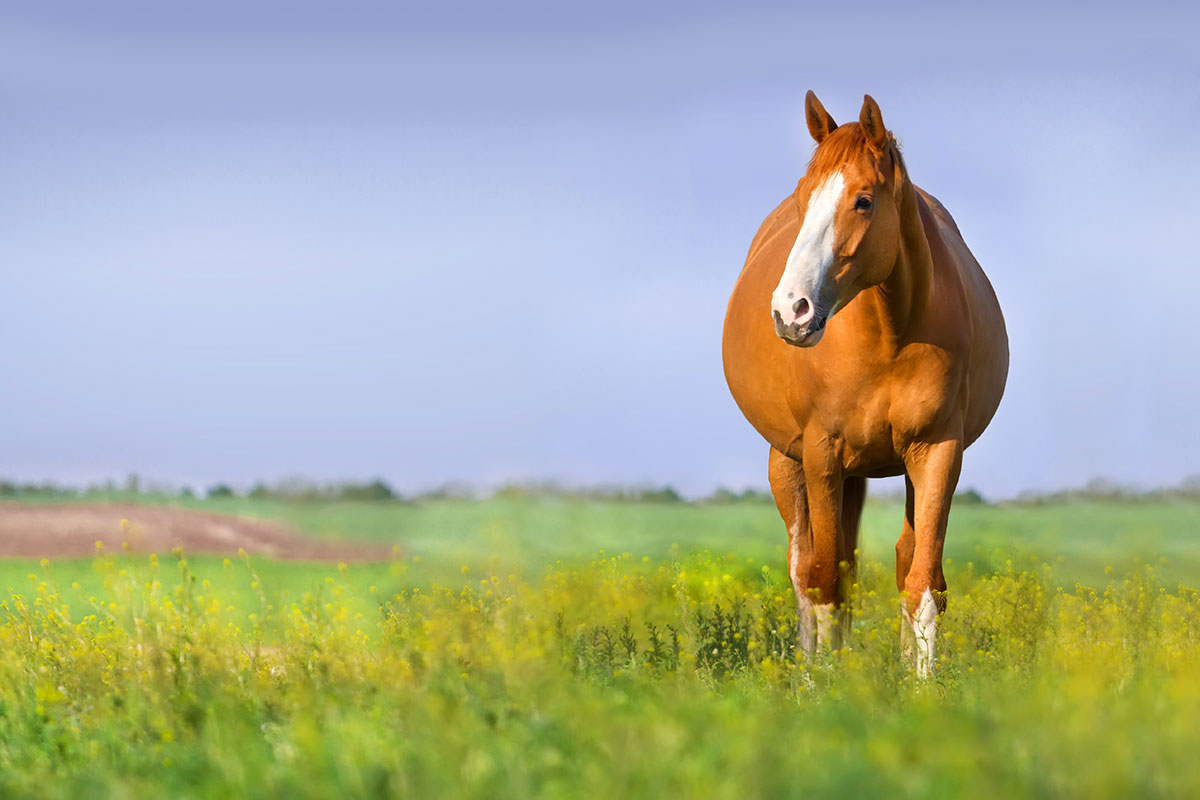[ad_1]
Late-gestation stomach ache in mares could be a perplexing enigma, a mix of thriller and urgency

A horse of any intercourse or reproductive standing might expertise stomach ache from gastrointestinal (GI) misery or muscle ache within the stomach. However a pregnant mare exhibiting stomach discomfort may very well be aborting her fetus or creating being pregnant problems.
Most colics resolve uneventfully: no surgical procedure and even fluids wanted. “Stomach ache is widespread in horses on the whole,” notes Ashley VanderBroek, DVM, Dipl. ACVS-LA, assistant professor of huge animal surgical procedure at Michigan State College (MSU) School of Veterinary Medication, in East Lansing.
In the case of coping with pregnant mares, “I’d say the vast majority of colic circumstances are just like horses that aren’t pregnant—normally delicate and resolve on their very own,” VanderBroek says. Nonetheless, when a pregnant mare’s colic turns into extreme, it would require “immediate surgical administration.”
Causes of Late-Gestation Colic
“Colic is only a time period to explain stomach ache within the horse,” VanderBroek explains. “More often than not that’s related to the GI tract, nevertheless it doesn’t need to be.”
“Now we have to consider the GI tract, urinary tract, and reproductive tract when a horse is displaying indicators of colic,” provides Julie Strachota, DVM, MS, Dipl. ACT, assistant professor and director of scientific training at MSU’s School of Veterinary Medication.
In late gestation area is scarce within the stomach. So, in a pregnant mare experiencing stomach ache, “a few of it might simply be discomfort from the whole lot being slightly bit extra compressed,” VanderBroek says.
When the mare’s inner organs get compressed and displaced, diagnostics turn into difficult.
“It is vitally, very laborious to name a few of these ‘GI issues’ simply primarily based on palpation or primarily based on ultrasonography,” says Ahmed Tibary, DMV, MS, DSc, PhD, Dipl. ACT, professor emeritus within the Division of Veterinary Scientific Sciences at Washington State College School of Veterinary Medication, in Pullman
This story requires a subscription to The Horse journal.
Present journal subscribers can click on right here to and proceed studying.
Subscribe now and achieve limitless entry to premium content material.
Subscribe Now
We at The Horse work to offer you the most recent and most dependable information and knowledge on equine well being, care, administration, and welfare via our journal and TheHorse.com. Our explanatory journalism supplies an comprehensible useful resource on essential and generally advanced well being points. Your subscription will assist The Horse proceed to supply this very important useful resource to horse house owners of all breeds, disciplines, and expertise ranges.
[ad_2]
Supply hyperlink
